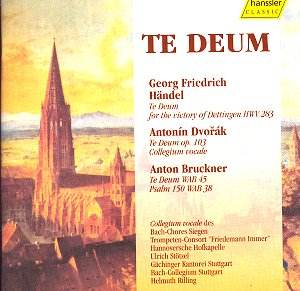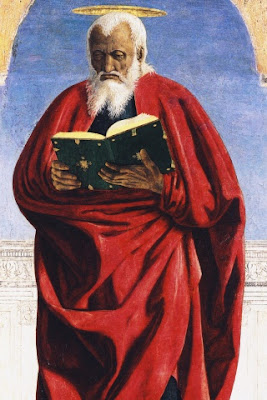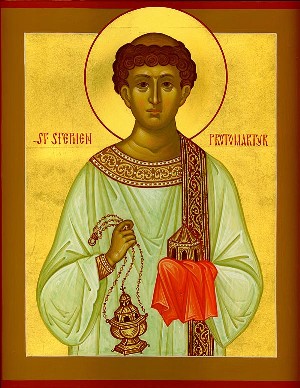
Come, O Lord, to the help of your people, sustained by the intercession of Pope Saint Silvester, so that, running the course of this present life under your guidance, we may happily attain life without end. Through our Lord.
* * *
Saint Sylvestre I, pape
Elu à la succession de Miltiade, Sylvestre fut pape pendant près de vingt-deux ans (du 31 janvier 314 au 31 décembre 335) sous le règne de Constantin le Grand (306-337), gouvernant l’Eglise à l’époque où elle passait de la persécution au pouvoir ; cependant, il semble n’avoir joué qu’un rôle insignifiant dans les grands événernents en cours. Il eut la satisfaction de voir l'Eglise de Rome enrichie et embellie par les largesses impériales auxquelles on doit de grands édifices comme la Basilique Constantinienne (plus tard Saint-Jean-du-Latran) avec son baptistère, et les basiliques Saint-Pierre et Saint-Paul.
Le pape Sylvestre organisa parfaitement le service des pauvres. Un évêque de Pamphilie, Luphronius ou Euphrosynus, vint à Rome ; ses discours et ses gestes donnèrent à Sylvestre l'occasion de divers règlements : il prescrivit aux prêtres et aux diacres de porter le colobium, tunique flottante et sans manches ; il ordonna de remplacer le nom des dieux que portaient les jours par les numéros des féries, il fit des dimanches et des jeudis des jours de fête, des mercredis, vendredis et samedis des jours de jeûne. Aux Grecs qui s'étonnaient de cette ordonnance, il rétorqua que le jeudi était le jour de l'Ascension et de l’institution de l'Eucharistie et que, puisque chaque dimanche commémorait la Résurrection, chaque samedi devait rappeler le séjour du Christ au tombeau.
Saint Sylvestre mourut à un âge avancé et fut enterré dans le cimetière de Sainte-Priscille sur la Via Salaria (31 décembre 335).
* * * * * *
NEW YEAR'S EVE
SEVENTH DAY WITHIN THE OCTAVE
OF THE NATIVITY
Almighty ever-living God, who in the Nativity of your Son established the beginning and fulfillment of all religion, grant, we pray, that we may be numbered among those who belong to him, in whom is the fullness of human salvation. Who lives and reigns with you in the unity of the Holy Spirit, one God, for ever and ever.
* * *

PRAYERS ON THE LAST DAY OF THE YEAR
The liturgical readings for Mass today play on the themes of the end and the beginning: the first reading reminds us it is the last hour (1 John 2.18) , while the gospel reassures that in the beginning was the Word (John 1.1).
A long-standing tradition has the people of God assembling at the time of Vespers or Compline to pray the Miserere (Psalm 51) to ask of God pardon for the sins and negligences, as well as to sing the Te Deum in gratitude to God for the blessings, of the year just ending.
Each of these solemn prayers has countless musical expressions, some of which are indicated with the Latin texts.



Miserere
(Psalm 51/psaume 50)

Miserere mei, Deus,
secundum magnam misericordiam tuam.
Et secundum multitudinem miserationum tuarum,
dele iniquiatatem meam.
Amplius lava me ab iniquitate mea:
et peccatto meo munda me.
Quoniam iniquitatem meam ego cognosco:
et peccatum meum contra me est semper.
Tibi soli peccavi, et malum coram te feci:
ut justificeris in sermonibus tuis, et vincas cum judicaris.
Ecce enim in inquitatibus conceptus sum:
et in peccatis concepit me mater mea.
Ecce enim veritatem dilexisti:
incerta et occulta sapientiae tuae manifesti mihi.
Asperges me, Domine, hyssopo, et mundabor:
lavabis me, et super nivem dealbabor.
Auditui meo dabis gaudium st laetitiam:
et exsultabunt ossa humiliata.
Averte faciem tuam a peccatis meis:
et omnes iniquitates meas dele.
Cor mundum crea in me, Deus:
et spiritum rectum innova in visceribus meis.
Ne projicias me a facie tua:
et spiritum sanctum tuum ne auferas a me.
Redde mihi laetitiam salutaris tui:
et spiritu principali confirma me.
Docebo iniquos vias tuas:
et implii ad te convertentur.
Libera me de sanguinibus, Deus, Deus salutis meae:
et exsultabit lingua mea justitiam tuam.
Domine, labia mea aperies:
et os meum annuntiabit laudem tuam.
Quoniam si voluisses sacrificium, dedissem utique:
holocasutis non delectaberis.
Sacrificium Deo spiritus contribulatus:
cor contritum, et humiliatum, Deus, non despicies.
Benigne fac, Domine, in bona voluntate tua Sion: ut aedificentur muri Jerusalem
Tunc acceptabis sacrificium justitiae, oblantiones, et holocausta:
tunc imponent super altare tuum virtulos.
Gloria Parti, Filio, et Spiritus Sancto;
sicut erat in principio, et nunc, et semper, et in saecula saeculorum.
Amen.
Te Deum

Te Deum laudamus:
te Dominum confitemur.
Te aeternum Patrem
omnis terra veneratur.
Tibi omnes Angeli;
tibi caeli et universae Potestates;
Tibi Cherubim et Seraphim
incessabili voce proclamant:
Sanctus, Sanctus, Sanctus,
Dominus Deus Sabaoth.
Pleni sunt caeli et terra
maiestatis gloriae tuae.
Te gloriosus Apostolorum chorus,
Te Prophetarum laudabilis numerus,
Te Martyrum candidatus laudat exercitus.
Te per orbem terrarum
sancta confitetur Ecclesia,
Patrem immensae maiestatis:
Venerandum tuum verum et unicum Filium;
Sanctum quoque Paraclitum Spiritum.
Tu Rex gloriae, Christe.
Tu Patris sempiternus es Filius.
Tu ad liberandum suscepturus hominem,
non horruisti Virginis uterum.
Tu, devicto mortis aculeo,
aperuisti credentibus regna caelorum.
Tu ad dexteram Dei sedes, in gloria Patris.
Iudex crederis esse venturus.
Te ergo quaesumus, tuis famulis subveni:
quos pretioso sanguine redemisti.Aeterna fac cum sanctis tuis in gloria numerari.
[Later additions, taken mainly from Psalm verses:]
Salvum fac populum tuum, Domine,
te Dominum confitemur.
Te aeternum Patrem
omnis terra veneratur.
Tibi omnes Angeli;
tibi caeli et universae Potestates;
Tibi Cherubim et Seraphim
incessabili voce proclamant:
Sanctus, Sanctus, Sanctus,
Dominus Deus Sabaoth.
Pleni sunt caeli et terra
maiestatis gloriae tuae.
Te gloriosus Apostolorum chorus,
Te Prophetarum laudabilis numerus,
Te Martyrum candidatus laudat exercitus.
Te per orbem terrarum
sancta confitetur Ecclesia,
Patrem immensae maiestatis:
Venerandum tuum verum et unicum Filium;
Sanctum quoque Paraclitum Spiritum.
Tu Rex gloriae, Christe.
Tu Patris sempiternus es Filius.
Tu ad liberandum suscepturus hominem,
non horruisti Virginis uterum.
Tu, devicto mortis aculeo,
aperuisti credentibus regna caelorum.
Tu ad dexteram Dei sedes, in gloria Patris.
Iudex crederis esse venturus.
Te ergo quaesumus, tuis famulis subveni:
quos pretioso sanguine redemisti.Aeterna fac cum sanctis tuis in gloria numerari.
[Later additions, taken mainly from Psalm verses:]
Salvum fac populum tuum, Domine,
et benedic hereditati tuae.Et rege eos, et extolle illos usque in aeternum.
Per singulos dies benedicimus te;
et laudamus Nomen tuum in saeculum, et in saeculum saeculi.
Dignare, Domine, die isto sine peccato nos custodire.
Miserere nostri Domine, miserere nostri.
Fiat misericordia tua, Domine, super nos,
Per singulos dies benedicimus te;
et laudamus Nomen tuum in saeculum, et in saeculum saeculi.
Dignare, Domine, die isto sine peccato nos custodire.
Miserere nostri Domine, miserere nostri.
Fiat misericordia tua, Domine, super nos,
quemadmodum speravimus in te.
In te, Domine, speravi:
non confundar in aeternum.
In te, Domine, speravi:
non confundar in aeternum.










































